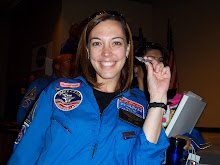The cognitive learning theory concerns how a learner processes information (Laureate Education, Inc., 2008). In the classroom, it is the goal of educators to teach in their content area and have students file that information away in their long-term memory. There are three types of long-term memory: Declarative (facts/information), Procedural (steps/procedures), and Episodic (events). According to Orey (2008), creating meaningful events (i.e., “episodes”) in the classroom is the best way to assist learners in storing information away in long-term memory (Laureate Education, Inc., 2008). Utilizing technology as a cognitive tool to create episodic experiences provides an avenue for true student engagement, understanding, and application.
 There are various technology tools that can be used as cognitive tools in the classroom. In using Power Point, images can be powerful in helping learners make connections, especially for those that are visual learners (Pitler, Hubbell, Kuhn, & Malenoski, 2007). Excel spreadsheets can help to engage learners in carrying out math concepts that might otherwise be tedious (Laureate Education, Inc., 2008). Concept mapping tools help learners organize ideas about content and make connections. Virtual Field Trips provide an opportunity for learners to experience an event or process that they might not otherwise be able to, using a variety of learning theories in one experience (Laureate Education, Inc., 2008).
There are various technology tools that can be used as cognitive tools in the classroom. In using Power Point, images can be powerful in helping learners make connections, especially for those that are visual learners (Pitler, Hubbell, Kuhn, & Malenoski, 2007). Excel spreadsheets can help to engage learners in carrying out math concepts that might otherwise be tedious (Laureate Education, Inc., 2008). Concept mapping tools help learners organize ideas about content and make connections. Virtual Field Trips provide an opportunity for learners to experience an event or process that they might not otherwise be able to, using a variety of learning theories in one experience (Laureate Education, Inc., 2008).Personally, I have specifically used Power Point and Virtual Field Trips as cognitive learning tools. In reflecting about technology tools in general, relative to the cognitive learning theory, I can clearly see where I have more success in engaging students when I use these tools than if I were to use traditional lecture or drill-and-practice. As many educators will day, it just takes time to explore and develop meaningful learning experiences around these cognitive tools. Anyone have ideas on where to find the time? I’m willing, but need the time!
Laureate Education, Inc. (Producer). (2008). Program five. Cognitive Learning Theory [Motion picture]. Bridging learning theory, instruction and technology. Baltimore: Author.
Pitler, H., Hubbell, E., Kuhn, M., & Malenoski, K. (2007). Using technology with classroom instruction that works. Alexandria, VA: ASCD.





Hi Holly, I like the point you made that utilizing technology as a cognitive tool helps to create episodic experiences and provides an avenue for true student engagement, understanding, and application. As we know from our own experiences, students these days are wired differently and need tools that will excite and engage them in the learning process. Do you present key ideas on Power Points? I use Power Points to display our vocabulary words for the day, my daily journal, and to play jeopardy with my science students. They especially love to play jeopardy, which is a way we review before a test, because it is engaging and has sound effects to go along with it. How often do you use virtual field trips in your classroom? I noticed that you are a science teacher, do you have a good site for science field trips? I agree, how do we find the time to develop new meaningful learning experiences? I feel like I have so much on my plate right now, that it is hard to spice up my lessons. We are fortunate to have this class and be able to take the tools learned and implement them into our own classroom. Look at it this way, we are much more technology advanced than the rest of our staff.
ReplyDeleteHi Michelle,
ReplyDeleteI don't use Power Point on a daily basis because of the lack of a projector in my classroom, but I have been told I have one coming soon! I like your idea of displaying key words for the day in this way...it would also be an easy and valuable way to embed video clips from United Streaming to help students understand the words better.
I use virtual field trips in the form of virtual labs every-now-and-then in my classes. My school has some textbook resource CD's that I use with my students. There is one on the Periodic Table of Elements and one for Solubility that students like. I found it hard to find some good ones on the Internet for my content area, but there are some great ones for Life Science! Do you know of any virtual field trips I might be able to investigate?
Yes, time to spice up lessons would be great, and I am very glad to be taking this course right now...it does give me time to investigate resources and implement them, even if just a little at a time. I have already started using some ideas and resources with my 8th grade science colleagues!
Thanks for posting and for your great questions and ideas! Let me know if you find something I might like to use, and I will do the same!
Holly